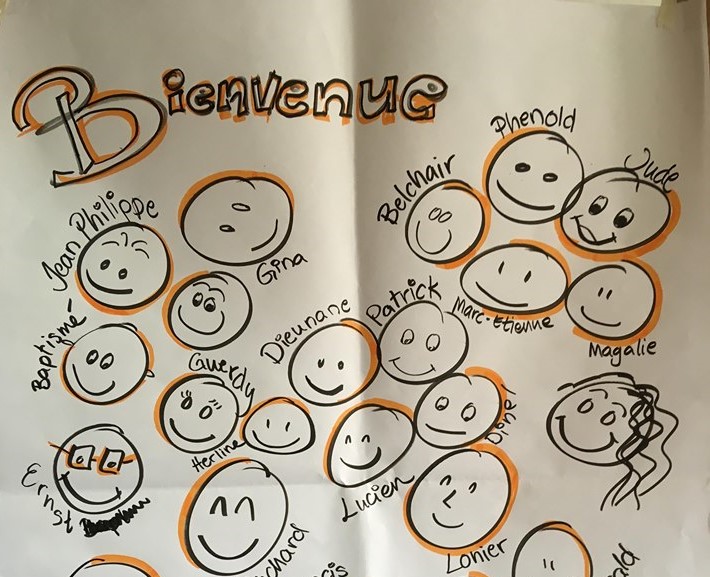A case from the community
Empowering local agents with digital learning
What do you do when COVID-19 prevents you from facilitating a week-long in-person training event that has taken months to prepare for? Find out how five organisations quickly transformed their face-to-face event to a successful blended learning opportunity.
As Covid-19 shut down the world, Act Church of Sweden, Lutheran World Federation, Christian Aid and Diakonie Katastrophenhilfe's plans of a weeklong in-person training in Haiti were thwarted. The event was planned for March 2020 and was aimed at strengthening resilience and capacity to handle crises.
As political unrest in the country and Covid-19 travel restrictions ground the plans to a halt, practitioners from around the world came together to carry out the training through a blended learning approach.
Transforming an in-person event to a meaningful online format
Local partners of Act Church of Sweden had been requesting support to strengthen resilience and capacity within local organisations in Haiti for years. Facing the challenge of not being able to travel, Act Church of Sweden initiated the transition of the one-week workshop into a meaningful training in an online environment.
In a joint collaboration within the ACT Forum Haiti and partners, images, interactive content, videos and quizzes on topics such as external aid, accountability, group cash grants, psychosocial support, were created and implemented on two learning sites. One for a beginner’s group and another for an advanced group.
Both learning sites were designed to support a co-facilitation process, where local organisations were a part of creating and shaping the trainings as they learned and shared together. This type of design enables participants to put the training into their own context throughout the learning journey.

“Our last months of trainings, workshops and co-facilitation (all digital) have shown us that transformation is possible with very few resources, and this makes it possible for us to come closer to the field, to the realities and needs of our local partners and the communities they serve,” says Nathalie Töpperwien Blom, Programme Manager at Act Church of Sweden.
By engaging the network Local to Global, practitioners from around the world participated in the designing of the training; combining many years of experience of working with local communities in complex environments, such as reoccurring natural disasters, protracted crises, ongoing conflict or post-conflict. In total, around 50 people participated in the making of the blended learning.

The outcome of this big co-creation exercise was that local partners in Haiti are now empowered with the skills, knowledge and tools to implement quick and efficient local interventions right after disaster strikes. They have also gotten the administrative and organisational know-how to attract funding and implement project in accordance to international requirements.
“They own their learning and are entirely responsible for the process, as we are not there. This increases local ownership, accountability and empowerment for both staff and communities,” says Nathalie Töpperwien Blom.
Another positive outcome, for the organisations involved, was joining forces with partners in ACT Forum Haiti. By working together, instead of in parallel, they are now able to ensure fast and cost-efficient implementation of disaster relief, cash transfers and capacity strengthening.
Suggestions and learnings from the design team:
- In places with a poor and unreliable internet connection, it is important to ensure that people can access the same information and material in a variety of ways.
- For this training, all the material was sent to the participants a day before each session by email, and through a joint WhatsApp group. Links and documents were made available through the Fabo learning sites.
By Nina Falkesgaard Sørensen

